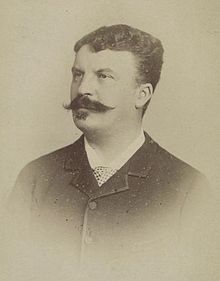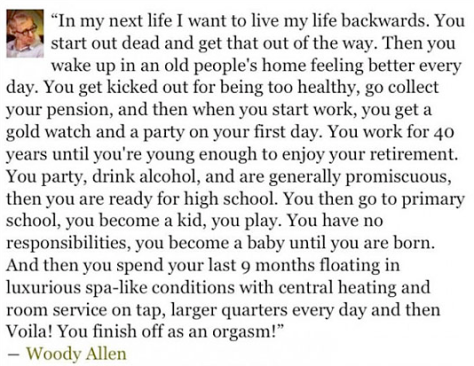Woody Allen said that: “My One Regret In Life Is That I Am Not Someone Else.”
Assuming reincarnation and time travel are possible, which author would you come back as?
They can be dead or still alive…and feel free to change gender, nationality, sexual orientation, religion, etc.
This fantasy question is rather different to being asked which authors you’d have to dinner. For instance, when I think of my writing heroes, irrespective of their talent, some of them had unhappy lives. I might still risk it, as I’d be fascinated to see how their creative process worked.
My choices would be:
Of the dead
* Rumi: the Persian poet, revered for his love poetry. I wonder what his love life was like. He had a decent innings surviving until the age of 66…impressive for the 13th-century.

* Guy de Maupassant: A great short story writer, who rubbed shoulders with such luminaries as Alexandre Dumas, Gustav Flaubert, Ivan Turgenev and Émile Zola. Sadly, his own story was short, for he died of VD in an asylum at the age of 42.

* Richard Brautigan: A writer of bizarre comedic stories, a real maverick, but dead by his own hand at the age of 49, his body not found for a month.

Perhaps I should change gender. French writers Anaïs Nin and Colette led fascinating and erotic lives, surviving until the ages of 73 & 81.


Among the Living
Shape-shifting into the careers of living authors would be interesting. I note that all the writers I’ve chosen have retained the common touch, not abandoning their humble roots.
* Larry McMurtry: his output is impressive, with his books adapted into respectful movies and television series. Lonesome Dove is a great Western. He’s a used book-store owner & cat lover.

* Dennis Lehane: brilliant novels that win awards and are turned into decent films, which is something of a miracle. Also wrote episodes of The Wire.

* James Lee Burke: an illustrious writing career, and he’s still actively publishing in his 80s. I like how he stays true to his characters, writing series of novels about them. Daughter Alafair is also a best-selling crime author.

* Alice Hoffman: my favourite author of Magical Realism, which she inserts seamlessly into her tales of characters struggling against the odds. Great at showing how what someone considers to be magic provides them with the courage to endure.

Who would you be? One of the Brontës? Charles Dickens? William Shakespeare?
Or someone contemporary and still living, such as Hilary Mantel, Margaret Atwood or Paul Auster?
Just think of the fun you could have getting these famous authors to write something radically different!



